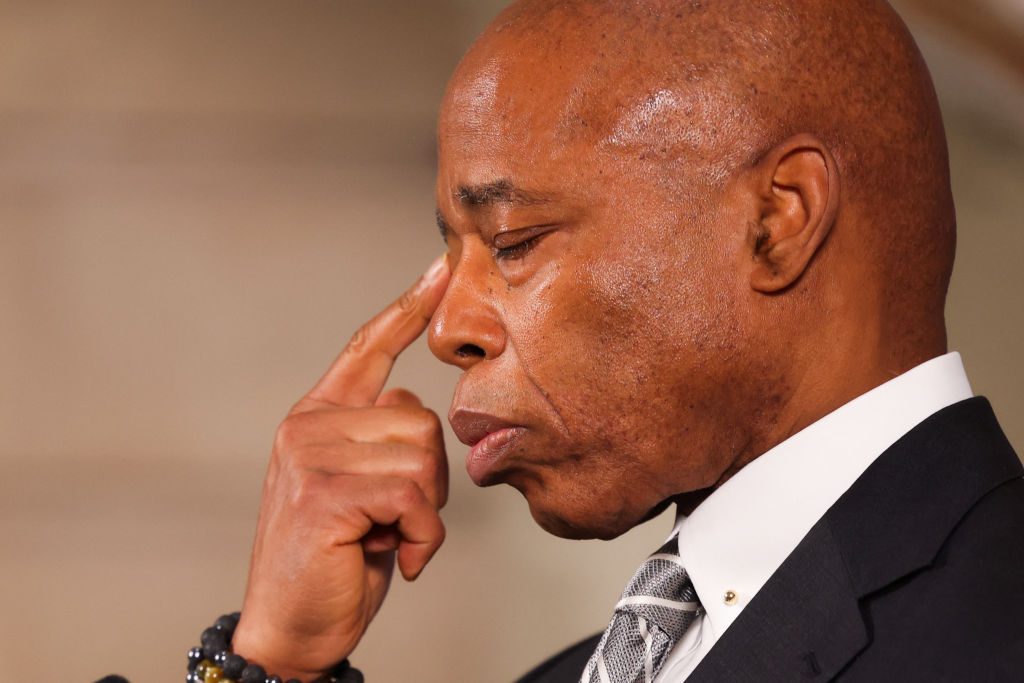As New York City races toward its 4 November general election, all eyes are on Mayor Eric Adams — not as a leading contender, but on whether he’ll bow out.
With most polls showing Adams coming in fourth place behind socialist firebrand Zohran Mamdani, former governor Andrew Cuomo, and Republican Curtis Sliwa, the mayor faces intense pressure to abandon his reelection campaign.
Unlike the ranked-choice primary, general election voters will select only one candidate, and whoever gets the most votes wins. With Mamdani firmly in first place, the only realistic way to defeat him is consolidating the opposition. Cuomo, Mamdani’s leading rival, stands to gain the most from Adams’s departure.
All three candidates are hinging their hopes on the roughly 1.78 million independent, unaffiliated, and Republican voters who couldn’t vote in the June Democratic primary.
Barring extraordinary and unforeseen developments, however, Adams will not be re-elected. If he remains, in all likelihood, he’ll come in third or fourth place, inadvertently contributing to an easy Mamdani victory. The mayor’s post-election career prospects would also be harmed by the humiliation of a defeat as a sitting mayor.
Adams, a former police captain, state senator, and Brooklyn borough president, doesn’t have the option of practicing law or another comfortable profession after his term in office. His corruption allegations further diminish his post-mayoral prospects in business or lobbying. As one of the city’s most gifted retail politicians, however, he might parlay his one term into a lucrative media role on local radio or television.
Rumors have swirled over the past week that the Trump administration is looking to give Adams a job and thus clear him from the race. Positions range from a high-ranking post in the Department of Housing and Urban Development to the ambassador of Saudi Arabia.
In a Friday press conference widely expected to announce his exit from the race, Adams doubled down. He insisted that he’s the only candidate who can defeat Mamdani, calling Cuomo “a snake and a liar”.
Were Adams to depart, Sliwa would then face immense pressure to do likewise, potentially clearing the field for a Mamdani-Cuomo heads-up rematch. If Mamdani is near his electoral ceiling by having already secured nearly everyone who’ll vote for him, Cuomo’s chances of victory rise quickly. At least one recent poll shows Cuomo ahead in a two-way race.
What’s beyond question is that Adams’s decision will impact his legacy. Obscured by the political horse race and the mayor’s low polling is a record of genuine accomplishments.
Under Adams, murders and shootings are near historic lows. Meanwhile, his signature City of Yes housing plan will allow an estimated 82,000 new units citywide over 15 years, the most important change to the city’s land-use code since 1961. And his trash containerization program has taken mounds of black garbage bags off the curb, making the city cleaner and more pleasant.
Adams’s decision, then, largely comes down to whether he wishes to protect this legacy and his career options — or go down as the mayor who let socialism slip into New York City.











Join the discussion
Join like minded readers that support our journalism by becoming a paid subscriber
To join the discussion in the comments, become a paid subscriber.
Join like minded readers that support our journalism, read unlimited articles and enjoy other subscriber-only benefits.
Subscribe